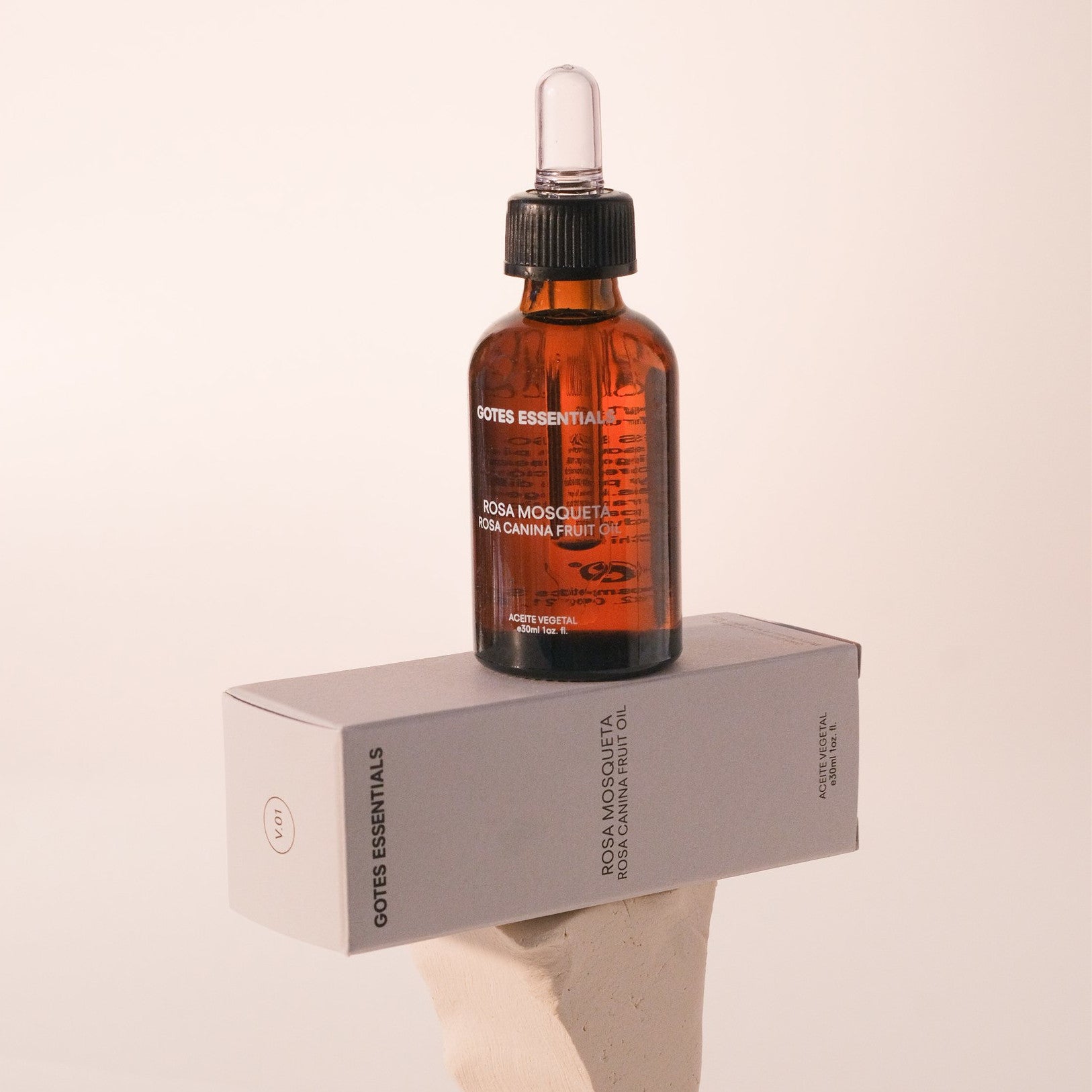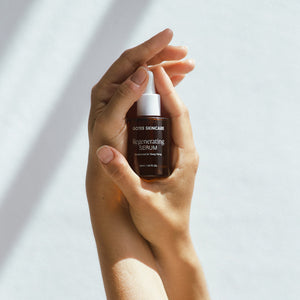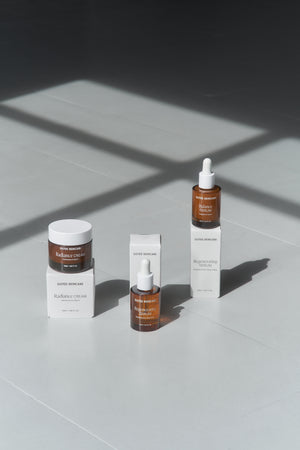
How to use Rosehip vegetable oil
Rosehip oil is a highly prized natural elixir in the world of skin care due to its countless benefits and wide range of uses. In this article, we will take a deep dive into the origins and properties of this valuable oil, explore its various uses for the skin, and share important precautions and recommendations for its proper use.
Origins and Properties of Rosehip oil
Rosehip oil is extracted from the seeds of the rosehip bush, which grows in various regions of the world, including the Chilean Andes and some areas of Europe. This oil is loaded with essential fatty acids, antioxidants and vitamins, giving it powerful properties for the skin.
Cell regenerator
One of the highlights of rosehip oil is its ability to stimulate cell regeneration. Its rich content of omega-3, omega-6 and linoleic acid fatty acids helps repair and rejuvenate the skin, visibly reducing the appearance of scars, stretch marks and acne marks over time.
Antioxidant
The antioxidants present in rosehip oil, such as vitamin C and vitamin E, are powerful allies in the fight against free radicals. These compounds protect the skin from oxidative stress, thereby reducing signs of premature aging, such as wrinkles, fine lines, and loss of firmness.
Anti-inflammatory
Thanks to its anti-inflammatory properties, rosehip oil is effective in soothing irritated skin and reducing inflammation caused by conditions such as dermatitis, psoriasis, and sunburn. Applying it topically can help relieve the itching, redness, and discomfort associated with these conditions.
Moisturizing and emollient
Rosehip oil is an exceptional natural moisturizer that penetrates deeply into the skin, providing intense and long-lasting hydration. Its fatty acids help strengthen the skin barrier, keeping the skin soft, flexible and protected against moisture loss. Additionally, it acts as an emollient, softening and nourishing rough, dry skin.
Clarifying
If you are looking to improve the luminosity and tone of your skin, rosehip oil can be your ally. Its lightening properties help reduce the appearance of dark spots, hyperpigmentation and discoloration, leaving skin more even, radiant and luminous.
Healing
Rosehip oil is widely recognized for its ability to accelerate the skin healing process. Its regenerative action stimulates the production of collagen and elastin, which helps soften and improve the appearance of surgical scars, acne scars and marks left by wounds and skin lesions.Uses of Rosehip Essential Oil
Skin Regeneration
To make the most of the regenerative properties of rosehip oil, apply it to clean, dry skin and massage gently until completely absorbed. Its regular application can help improve the appearance of scars, stretch marks, wrinkles and acne marks, leaving the skin soft, firm and rejuvenated.
Skin Hydration
Mix a few drops of rosehip oil with your regular moisturizer and apply it to your skin after cleansing. This powerful combination will provide deep, long-lasting hydration, leaving skin soft, supple and revitalized.
Anti-Aging
To combat signs of aging, such as wrinkles, fine lines, and loss of elasticity, apply rosehip oil as part of your nighttime routine. Its antioxidant-rich nutrients will help protect skin from environmental damage and stimulate collagen production, thereby improving skin firmness and texture.
Prevention of Stretch Marks
During pregnancy or periods of weight change, gently massage rosehip oil into stretch mark-prone areas such as the abdomen, thighs, and breasts. Its moisturizing and regenerative action can help improve skin elasticity and prevent the formation of stretch marks, or reduce their appearance if they are already present.
Nail Care
Apply a few drops of rosehip oil to dry cuticles and nails and massage gently to strengthen them and protect against dryness and breakage. This natural treatment helps keep nails healthy, nourished and resistant, promoting strong and uniform growth.
Precautions and recommendations for use
Although rosehip oil is safe for most people, it is important to keep some precautions in mind before use:
- Perform a patch test on a small area of skin before full application to check if you are allergic or sensitive to the oil.
- Avoid contact with eyes and mucous membranes.
- Do not apply rosehip oil to open wounds or serious burns without first consulting a healthcare professional.
- Store the oil in a cool, dark place away from direct sunlight to extend its shelf life and maintain its effectiveness.
In short, rosehip oil is a natural treasure for your skin, packed with benefits and uses that can significantly improve your health and appearance. Whether you're looking to combat aging, improve skin texture, or treat specific concerns like scars and stretch marks, this versatile oil can be a valuable ally in your skincare routine.













